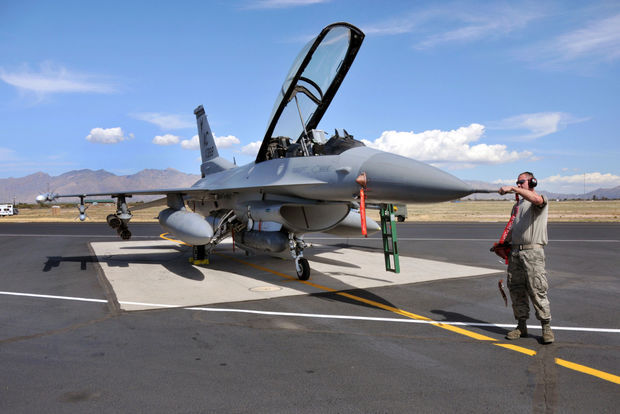The Air Force has withdrawn its plan to significantly expand visiting-unit training at Davis-Monthan Air Force Base, after the National Guard Bureau dropped its funding support for a key program.
The decision won’t affect other units stationed at D-M or other scheduled training exercises, D-M said.
But it will likely make moot a lawsuit filed by Tucson residents challenging an Air Force finding that the training expansion would have no significant impact on the community.
D-M said Friday that effective Sept. 30, Air Force officials are withdrawing the May 2015 finding and related environmental assessment essentially approving the plan to increase visiting-unit training flights, including the Air Guard’s Operation Snowbird program.
The proposal would have increased those annual training flights by about 60 percent, though in recent years they have represented only about 6 percent of the total annual flights at D-M, base officials say.
The National Guard Bureau decided in May to halt Operation Snowbird support and operations at Davis-Monthan, “based on the bureau’s reassessment of its training requirements and funding allocations for infrastructure and manpower.”
After evaluating the National Guard’s decision, the Air Force Air Combat Command said in a formal withdrawal letter that the Total Force Training mission at D-M will no longer be needed at the end of the fiscal year.
The Air Force had proposed expanding the longtime Operation Snowbird program — which began as a way to allow units from cold-weather bases to train in the winter — combining it with other visiting- and foreign-unit training under the umbrella of “Total Force Training” as part of the environmental assessment.
Local residents filed a federal lawsuit to stop the training expansion, contending that the Air Force didn’t properly study potential noise impacts and health and safety issues of increased air operations.
Parties in the case recently agreed to suspend the schedule for filing briefs, in light of the decision to drop the training expansion plan.
Joy Herr-Cardillo, a staff attorney at the Arizona Center for Law in the Public Interest representing plaintiffs in the case, said Friday that the lawsuit will likely be resolved through some sort of agreement or stipulation, but attorneys for the parties hadn’t yet discussed the final details.
Air Force and base officials emphasized that the decision affects only new operations linked to the Total Force Training initiative.
The decision also does not affect operations by aircraft stationed at D-M or aircraft from other bases that use the base as a training location “for scheduled exercises, airfield familiarization, or similar recurring activities,” D-M said.
Base officials noted that the withdrawal of the environmental-impact statement doesn’t preclude future changes to activities or missions at D-M, which would have to be evaluated under new environmental studies.





